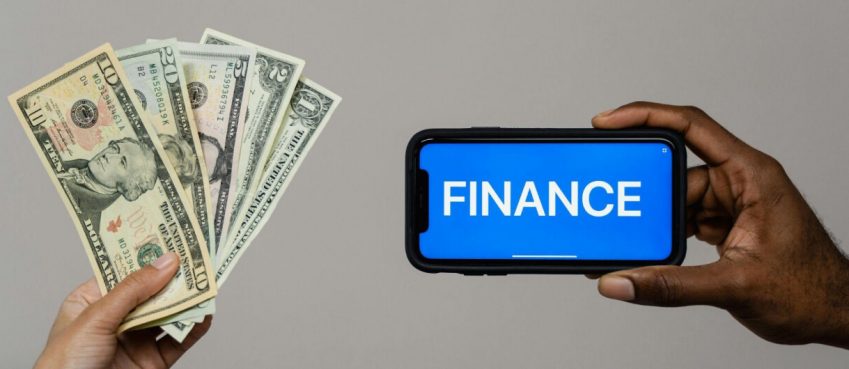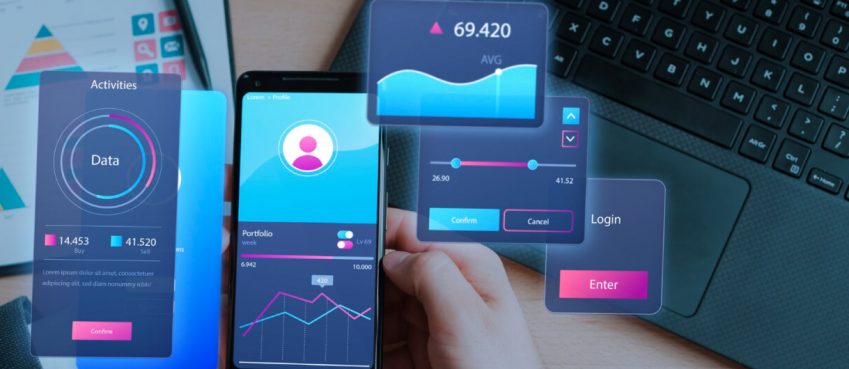
DeFi eliminates all of the main obstacles to conventional finance, including asset ownership, income creation from these assets, borrowing, and lending, in a fraction of the time required by current techniques. Once information is broadcast on the blockchain, where all these financial transactions take place, no one has the power to change it.
The main force behind the market’s growth is the transparency of financial transactions and payments in real-time on DeFi networks. DeFi allows users to maintain far more control over their resources than intermediaries while also keeping their personal data secure and confidential.
DeFi Lending: What Is It?
The way borrowing and lending operations in traditional finance is as follows: Clients who have money lend it to lenders in return for an agreed-upon interest rate. By allowing others to utilize their money in this manner, individuals make money. To ensure that everyone abides by the conditions, the procedure is overseen by a centralized financial institution, such as a bank or specialist loan broker.
In essence, DeFi is a decentralized, trustless environment where peers may lend money to other peers without the intervention of outside parties. With the aid of smart contracts, self-executing, and automated technologies where both sides’ duties and circumstances of contract execution are encoded, parties’ compliance to the loan’s terms is automatically ensured.
Also read: 30+ Loan Apps Like MoneyLion and Dave: Boost Your Financial Emergency (Best Apps Like Dave 🔥 )Building a DeFi Lending Platform: A Guide
It takes a mix of smart contract development, blockchain integration, and user interface design to build a decentralized finance (DeFi) lending platform. The following are the main phases in creating a DeFi lending platform development:
Define the Features and the Scope
Choose the precise features and functionalities you want to provide on your DeFi lending platform. This might involve managing collateral, loan liquidation processes, user wallets, lending and borrowing of cryptocurrencies, and interest rate computations.
A Blockchain Platform of Your Choice
Choose a blockchain platform that is appropriate for your DeFi lending platform. Due to its strong smart contract capabilities and thriving ecosystem, Ethereum is a preferred option. Depending on your needs, take into account different blockchain systems such as Binance Smart Chain or Polkadot.
Creation of Smart Contracts
Create smart contracts for your platform’s lending and borrowing capabilities. Making contracts for loan formation, loan terms, interest calculations, collateral management, loan repayments, and any other bespoke business logic unique to your lending platform are all included in this.
Auditing and Security
Make sure your smart contracts are secure by doing rigorous security audits to find and address any flaws. Engage outside security auditors to examine your code and guarantee that your platform is protected against possible threats.
Design and Development of User Interfaces
Make your DeFi lending platform’s user interface simple and easy to use. Your platform should enable users to engage with it easily, check their loan positions, manage collateral, and carry out lending or borrowing activities. For an engaging user experience, think about using contemporary web development frameworks and technologies.
Compatibility with Wallets
Enable connection with well-known cryptocurrency wallets so users may link their wallets and easily access money. Although MetaMask is a popular wallet, you should think about supporting alternative wallets that are built on the blockchain platform of your choice.
Management of Liquidity and Collateral
Establish the platform’s liquidity management strategy. You may create your own liquidity methods or opt to utilize already-established liquidity pools. To handle the acceptance, appraisal, and liquidation of collateralized loans, create a sophisticated collateral management system.
Regulations and Conformity
Recognize and abide by any applicable laws and regulations that are particular to your target countries. Consult legal professionals to make sure your platform complies with the law.
Deployment and Testing
Perform a thorough functional, security, and performance test on your platform. To find and fix any problems, do simulated and actual testing. When you are certain that your platform is stable, launch a blockchain network deployment.
Regular Upkeep and Upgrades
Keep an eye on and upkeep your DeFi lending platform. Keep up with the most recent platform updates, security fixes, and feature additions. To enhance user experience and fix any problems that may develop, collect user input and iterate on your platform.
Conclusion
The growth of the DeFi lending platform offers up new opportunities for the financial sector. The use of technology increases the flexibility of financial management and makes it more accessible to a wider variety of consumers.
Top 10 News
-
01
Top 10 Deep Learning Multimodal Models & Their Uses
Tuesday August 12, 2025
-
02
10 Google AI Mode Facts That Every SEOs Should Know (And Wha...
Friday July 4, 2025
-
03
Top 10 visionOS 26 Features & Announcement (With Video)
Thursday June 12, 2025
-
04
Top 10 Veo 3 AI Video Generators in 2025 (Compared & Te...
Tuesday June 10, 2025
-
05
Top 10 AI GPUs That Can Increase Work Productivity By 30% (W...
Wednesday May 28, 2025
-
06
[10 BEST] AI Influencer Generator Apps Trending Right Now
Monday March 17, 2025
-
07
The 10 Best Companies Providing Electric Fencing For Busines...
Tuesday March 11, 2025
-
08
Top 10 Social Security Fairness Act Benefits In 2025
Wednesday March 5, 2025
-
09
Top 10 AI Infrastructure Companies In The World
Tuesday February 11, 2025
-
10
What Are Top 10 Blood Thinners To Minimize Heart Disease?
Wednesday January 22, 2025







